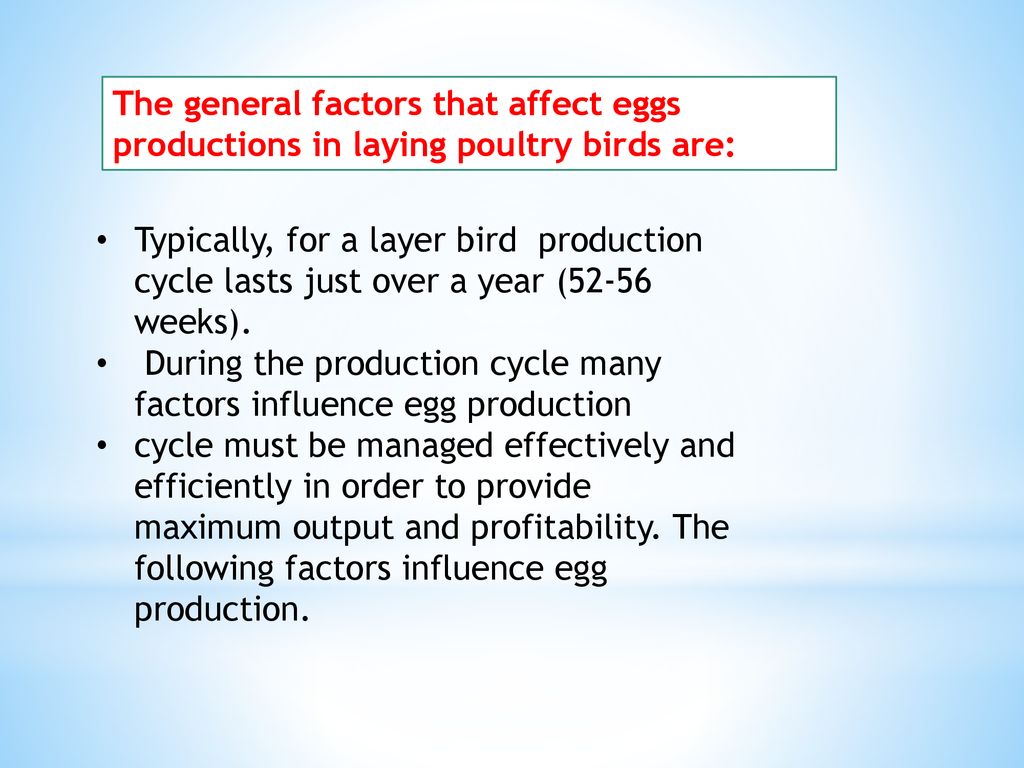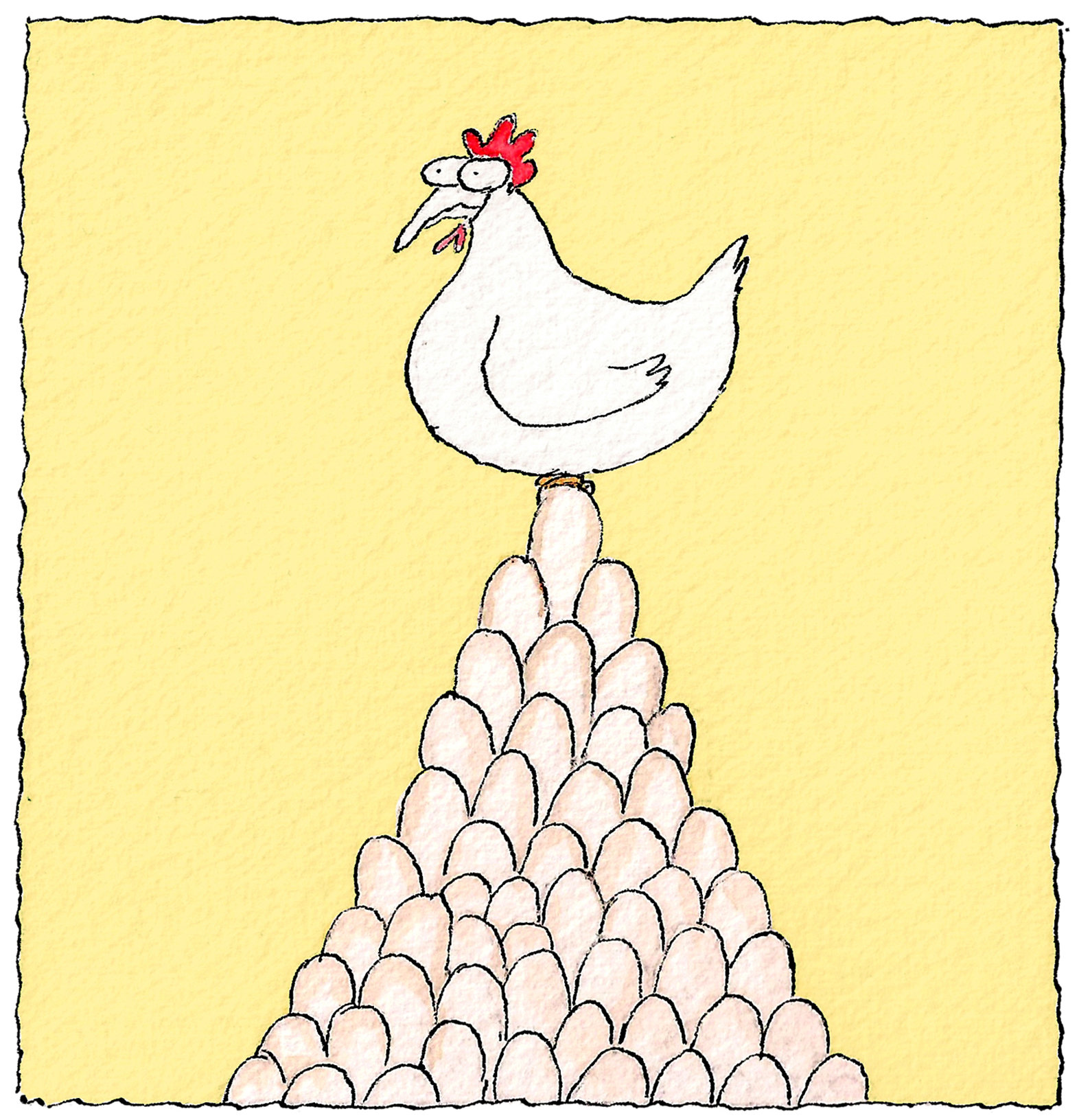Are you curious about how many eggs chickens lay a week? Knowing the basics of chicken husbandry is key to understanding the egg-laying habits of chickens. In this article, we will provide an overview of chicken egg-laying habits and practical advice on how to maximize the number of eggs your chickens produce each week. We will also discuss the factors that affect a chicken’s egg-laying capabilities, such as age, diet, and environment. By the end of this article, you will have a better understanding of how many eggs a chicken can lay in a week and how you can maximize egg production.
Factors Affecting Egg Production

Age of the Chicken
The age of a chicken affects how many eggs it can lay in a week. Generally, a chicken will start to lay eggs at around 18 to 20 weeks of age. As chickens age, the amount of eggs they lay per week will decrease.
Health and Nutrition
A healthy chicken is a productive chicken. A chicken that is well nourished will produce more eggs than one that isn’t. Foods that are high in calcium and protein are necessary for maintaining a chicken’s egg production.
Breed
The amount of eggs a chicken can lay in a week can also be affected by its breed. Some breeds, such as the Rhode Island Red, are known for laying more eggs than others.
Season
The season can also have an effect on how many eggs a chicken lays in a week. Chickens tend to lay more eggs in the spring and summer months, when days are longer and there is more light.
Nesting Boxes
Having adequate and comfortable nesting boxes for your chickens is important for egg production. If chickens don’t feel safe and secure, they won’t lay eggs.
Temperature
The temperature of a chicken’s environment can also affect how many eggs it lays in a week. Chickens tend to lay fewer eggs in cold weather, and more eggs in warm weather.
In general, a healthy chicken of a good breed can lay up to seven eggs per week. However, this is only an estimate and other factors can affect how many eggs a chicken will lay in a week.
Animal Welfare Considerations

It’s important to consider the animal welfare when maintaining a flock of chickens. Chickens in the wild typically lay fewer eggs than those who are kept in captivity, so it’s important to consider the following when looking to keep chickens:
- Shelter: Chickens need to be protected from the elements, so provide them with a shelter that is protected from the wind and rain.
- Diet: Provide your chickens with a balanced diet that contains enough protein to ensure they are able to lay eggs regularly.
- Space: Make sure your chickens have enough space to roam and explore, and ensure they have access to plenty of clean water.
- Health: Regularly check your chickens for any health issues, such as mites or other parasites, and ensure they receive regular veterinary checkups.
By providing the necessary care and attention, chickens can lay up to seven eggs a week, although this varies depending on their diet, age and health. Keeping chickens in a humane and healthy environment is essential for their welfare and will ensure they lay a healthy number of eggs each week.
How to Increase Egg Production
Diet
A high-quality diet is essential for a healthy flock and egg production. Provide a balanced diet of feed, treats, and kitchen scraps. A well-rounded diet with adequate protein and calcium will ensure strong eggshells and a productive flock.
Light
Chickens need up to 16 hours of light every day to maintain healthy egg production. Installing an automatic timer will ensure your chickens have the light they need.
Nesting Boxes
Building or buying nesting boxes for your flock is a great way to encourage egg-laying. Make sure to keep nesting boxes clean and free of debris to keep your chickens comfortable and encourage them to lay eggs.
Temperature
Chickens are most productive in temperatures between 65-75 degrees Fahrenheit. Make sure your coop is well ventilated and free of drafts to keep your chickens comfortable and productive.
By following these tips, a chicken can lay up to seven eggs a week. With an adequate diet, ample light, nesting boxes, and a comfortable temperature, your flock can reach its maximum egg-laying potential.
Frequently Asked Questions
What is the Best Environment for Chickens to Lay Eggs?
Chickens need a safe and secure environment in order to lay eggs. They should be provided with a shelter that is protected from predators, with plenty of space and ventilation. The temperature should be kept moderate and there should be plenty of light to stimulate egg laying. A clean and dry environment is also essential for egg laying, with plenty of fresh bedding available. A diet rich in protein and calcium is also important for ensuring healthy egg production. Finally, chickens should be provided with enough rest and a low-stress environment to ensure optimal egg production.
What Factors Can Affect The Number Of Eggs A Chicken Will Lay?
- Age: Chickens reach peak egg-laying at around 18-24 weeks and, after that, their production gradually declines.
- Breed: Different breeds of chicken will lay different numbers of eggs. Some breeds, such as Rhode Island Reds, are prolific layers, while others, such as Silkies, are less productive.
- Season: The amount of daylight affects egg-laying. Chickens lay the most eggs in the summer, when there is more sunlight, and less in the winter.
- Nutrition: Chickens need a balanced diet of high-quality feed to remain healthy and productive. A lack of essential vitamins and minerals can reduce the number of eggs laid.
- Stress: Chickens that are stressed due to overcrowding, lack of food and water, or other environmental factors may lay fewer eggs.
How should a chicken’s diet be adjusted to increase egg production?
- Protein: Increase the protein content of the diet by adding high-protein feed, such as soybean meal, to the diet. This will help chickens to maintain their energy levels, increase reproductive hormones and improve egg production.
- Calcium: Ensure that the diet contains adequate amounts of calcium. This is important for eggshell formation and also helps to prevent bone fractures.
- Vitamins and Minerals: Provide plenty of vitamins and minerals in the diet. Vitamin A is important for egg production, and minerals such as zinc, iron, and selenium are important for eggshell strength.
- Water: Provide clean and fresh water at all times to ensure that the chickens remain hydrated. This will help to improve egg production and egg quality.
- Grit and Oyster Shells: Provide access to grit and oyster shells, which are important for digestion and eggshell formation.
- Feed Form: Make sure that the feed is in a form that the chickens can easily eat. If the feed is too coarse or too fine, the chickens may not be able to consume it properly.
What are the Signs of an Egg-Laying Chicken?
When a chicken reaches laying age, they will start to show signs of readiness. Common signs of a chicken ready to lay eggs include increased activity and restlessness, a decrease in eating, and an increase in drinking. Chickens will also start to look for a nesting area, which is usually a dark, secluded spot in the coop or run. The hen may also start to produce a soft clucking sound.
Are There Any Diseases That Can Cause a Decrease in Egg Production?
Yes, certain diseases and health issues can cause a decrease in egg production.
- Infectious Bronchitis: This is a highly contagious respiratory disease that is caused by a virus. Symptoms include coughing, sneezing, and reduced egg production.
- Avian Influenza: This is a viral infection that is spread through contact with infected birds and their excretions. Symptoms include respiratory problems, decreased egg production, and decreased egg quality.
- Marek’s Disease: This is a viral infection that is spread through contact with infected birds and their excretions. Symptoms include paralysis, decreased egg production, and decreased egg quality.
- Mycoplasma Gallisepticum: This is a bacterial infection that is spread through contact with infected birds and their excretions. Symptoms include respiratory problems, decreased egg production, and decreased egg quality.
- Newcastle Disease: This is a viral infection that is spread through contact with infected birds and their excretions. Symptoms include respiratory problems, decreased egg production, and decreased egg quality.
- Parasites: Internal and external parasites can cause a decrease in egg production. Symptoms include poor egg production, poor egg quality, weight loss, and poor overall health.
It is important to be aware of the symptoms of these diseases and to take measures to prevent them from occurring in your flock.
Conclusion
The amount of eggs a chicken lays each week is determined by a variety of factors, including breed, age, nutrition, and environment. In general, a healthy chicken can lay between four and seven eggs per week. It is important for chicken owners to provide their chickens with proper nutrition and care to ensure a steady egg production. Additionally, if you are keeping chickens for their eggs, it is important to understand the basics of chicken husbandry to ensure the health and wellbeing of your flock.
